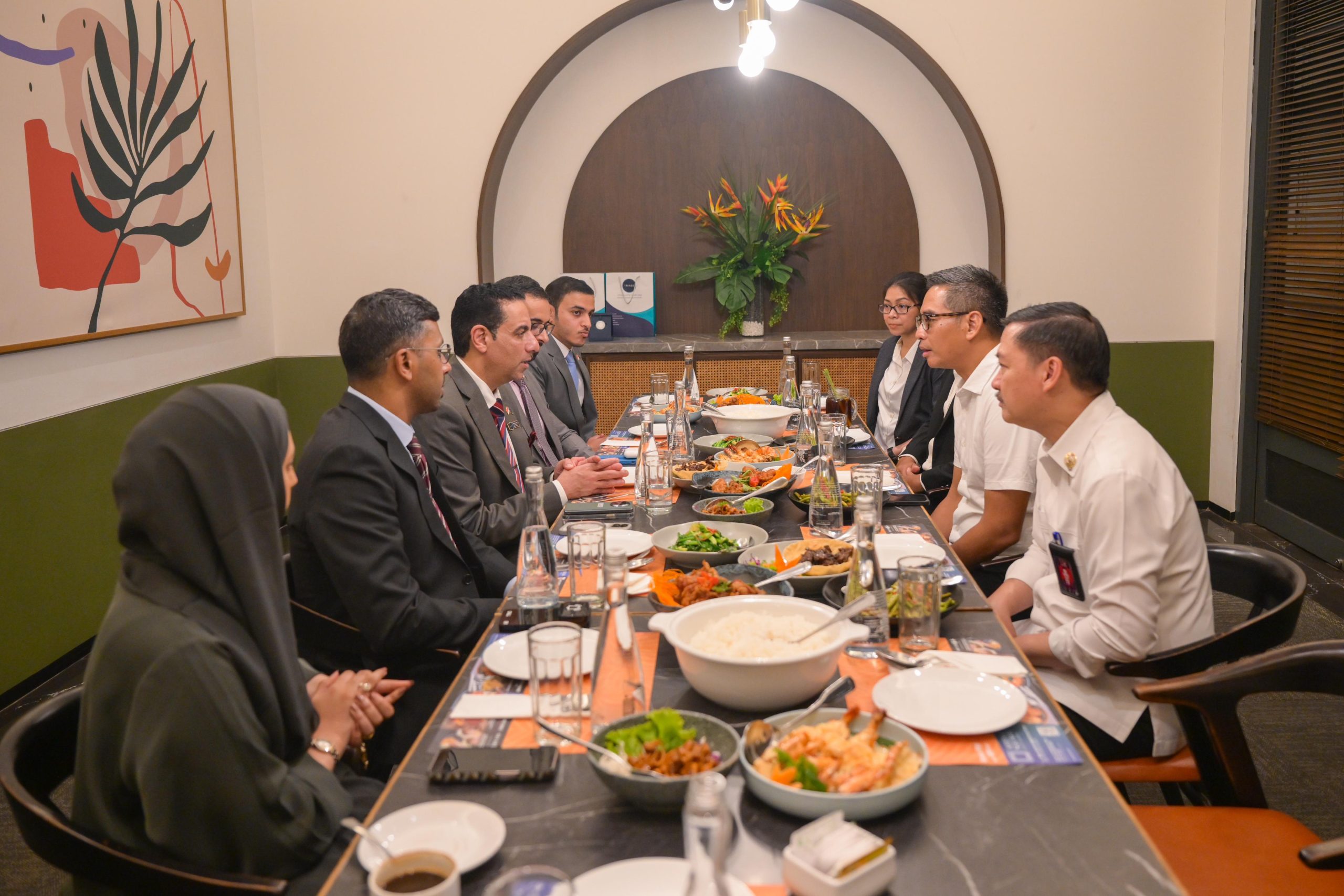On its first day in Jakarta, Indonesia, as part of the third leg of its Asian research tour, TRENDS Research & Advisory met with the Indonesian National Counter Terrorism Agency (BNPT). The discussion focused on the role of think tanks in combating terrorism and extremist ideologies, as well as potential areas for cooperation and partnership in specialized research and strategic studies.
Dr. Mohammed Abdullah Al-Ali, CEO of TRENDS, presented the center’s intellectual and research efforts in this field, emphasizing the crucial role think tanks play in refuting the arguments of extremist groups.
TRENDS researchers also showcased the Encyclopedia of the Muslim Brotherhood, a project comprising 35 books, with 12 already published and translated into multiple languages.

During the discussion, TRENDS launched the Indonesian translation of the 11th book in the encyclopedia, titled “The Concept of the State According to the Muslim Brotherhood”.
The book highlights the Muslim Brotherhood’s adversarial stance, since its inception, toward the Arab states, viewing them as an obstacle to the group’s ascent to power. The group opposed the modern principles upon which these states were built, considering them incompatible with its unique interpretation of Islam, which the group claimed to exclusively embody.
The discussion also featured the introduction of the Muslim Brotherhood International Power Index (MBIPI), the first of its kind globally. Compiled annually by TRENDS, the index tracks and measures the global influence and strength of the Muslim Brotherhood.

TRENDS researchers were briefed by BNPT officials on the agency’s work, vision, and achievements. The BNPT representatives praised TRENDS’ research efforts and expressed a strong desire to establish constructive cooperation between the two sides to enhance efforts in countering terrorism and extremist ideologies.
The discussion between TRENDS and BNPT underscored the importance of mutual cooperation in this field and other research areas, fostering research excellence and knowledge dissemination.
Both sides agreed to maintain communication with the goal of signing a memorandum of understanding and cooperation.



